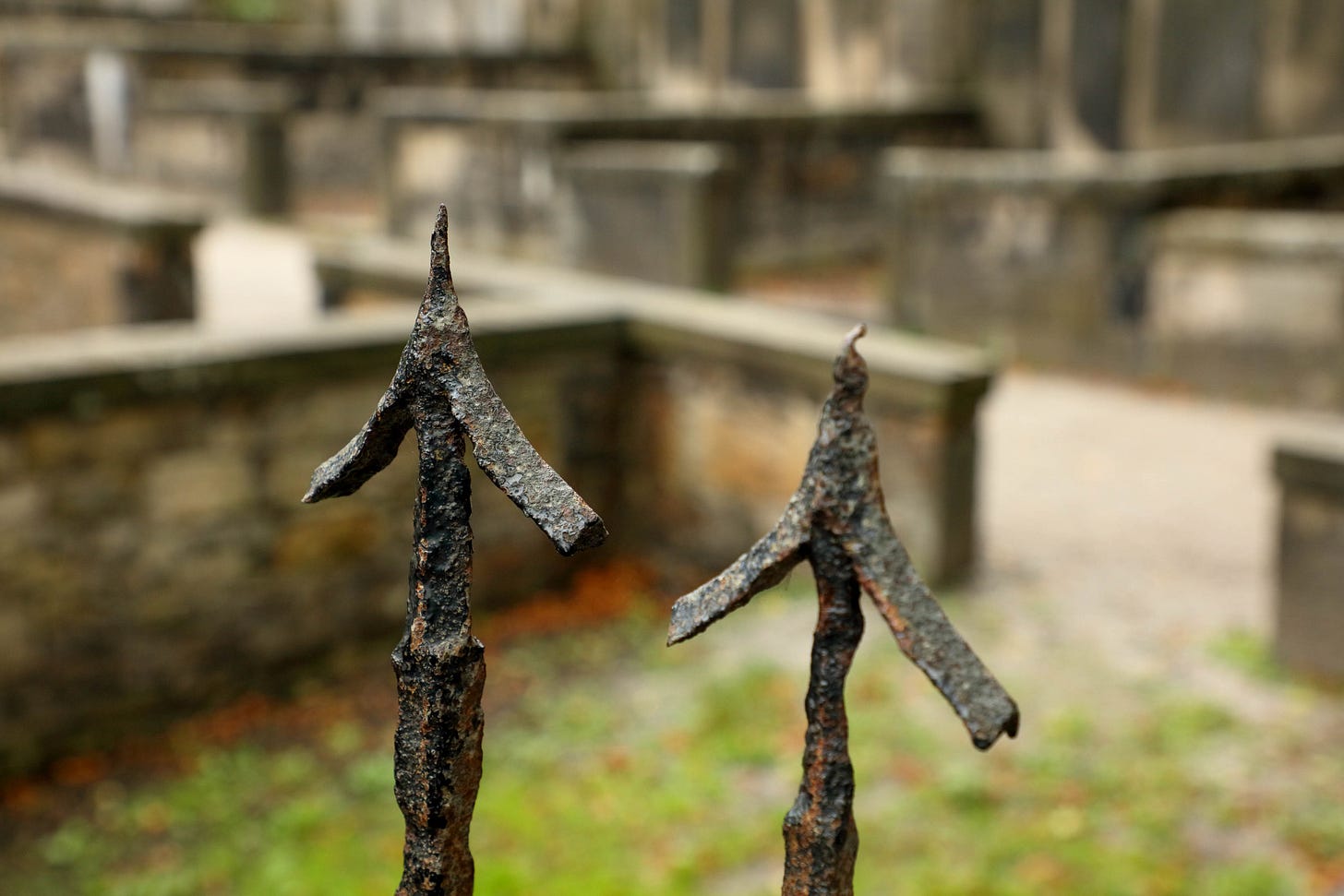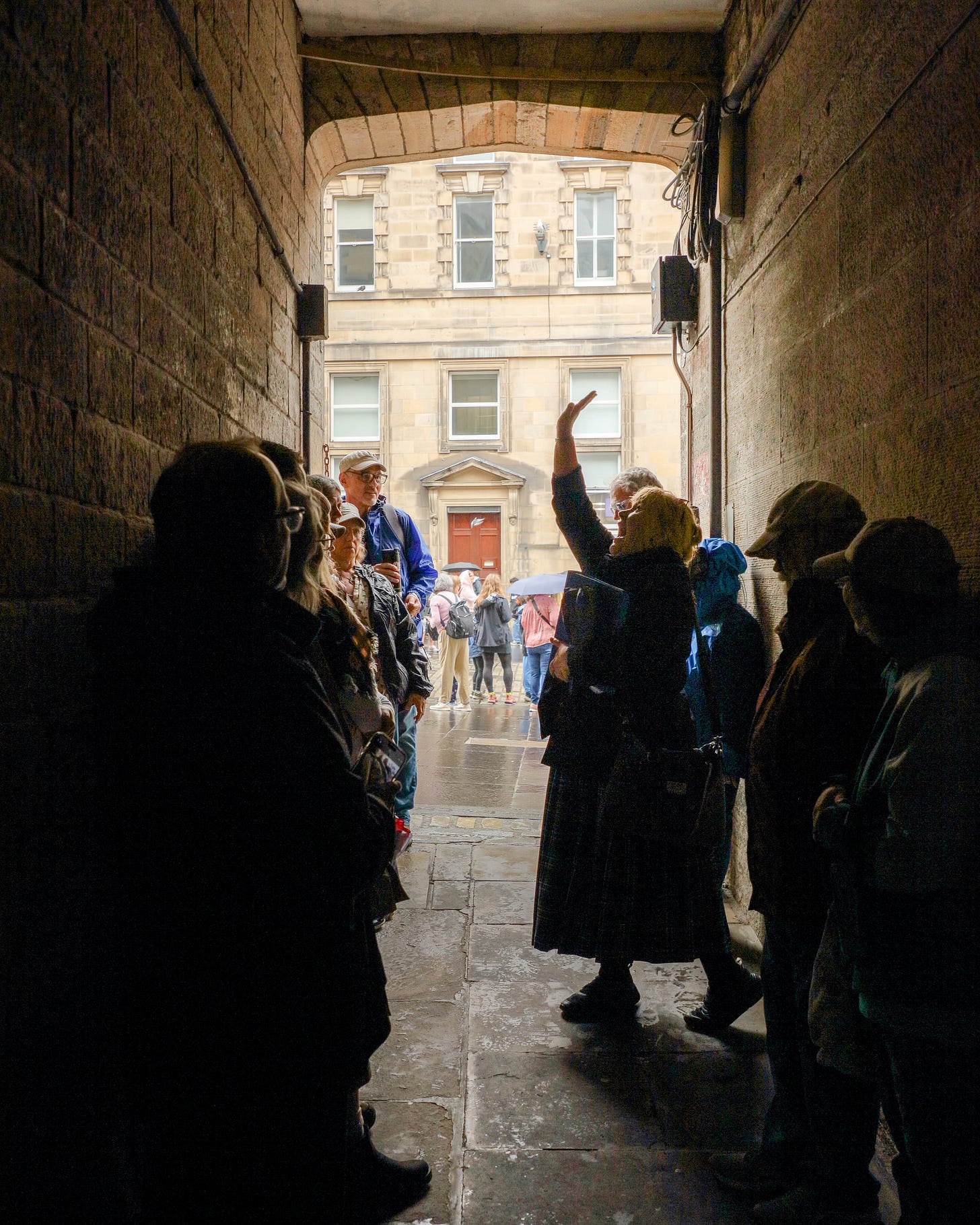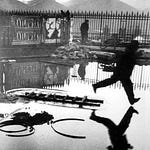The Scottish sense of humor is literary, historical, dark, playful, and all-pervasive. As my one and only example, I present a strip bar in Edinburgh named Burke & Hare. Warning: this story will include grave robbing, murder, and sexual innuendo — and that’s not even the dark side. Seriously. There are plenty of things to read on the internet.
Okay, you dirty rascal. I knew we’d get along.
The name Burke & Hare seems respectable enough, inasmuch as it sounds like a law firm or some financial enterprise, similar to the American euphemism “gentleman’s club.” We can rest assured there are no gentlemen in the club, and Burke & Hare are not public defenders. They are, in fact, one-third of Edinburgh’s ‘pubic triangle,’ three notable points on the city’s Euclidean garden of earthly delights.
But neither of the namesakes is alive today, and one dramatically not so. Even in death, they need not worry about their reputations being sullied by having their names attached to a strip bar. Their deeds are so despicable that they make the Pubic Triangle seem like the choir loft.
William Burke and William Hare were both laborers of Irish descent who moved to Edinburgh in the 1820s. When a lodger at Hare’s house died unexpectedly, leaving the rent unpaid, Burke suggested they take advantage of the fact that Edinburgh was home to one of the world’s leading schools of anatomy, and the fact that there were never enough cadavers to dissect. Indeed, there was a local cottage industry of “resurrection men” who supplied more-or-less fresh cadavers to the school with few questions asked.
Burke & Hare filled the man’s coffin with bark from a local tanner, carried the corpse to the school, and sold it for more than enough to cover the rent and their labor. A couple of months later, when one of Hare’s lodgers became ill, he and Burke decided that a dead man was better for business than a sick one. They sedated the renter with whisky, suffocated him, and sold his body for an even higher price.
After that, the men (and likely their wives) needed no further excuses. They would invite mostly single women to drink, suffocate them, and sell their bodies to the medical school. In total, they murdered sixteen people before they were caught.
Because of the lack of forensic evidence, Hare was offered immunity in exchange for his testimony. The trial was highly publicized, and a new rhyme was circulated. The most famous teacher of anatomy and most likely purchaser of the cadavers was Robert Knox, who was known to perform two public dissections per day for up to 400 medical students.
Up the close and doon the stair,
But and ben wi' Burke and Hare.
Burke's the butcher, Hare's the thief,
Knox the boy that buys the beef.
(A close is an alleyway, and ‘but and ben’ can mean ‘back and forth’ or refer to a two-room dwelling. As a bonus, ‘ben’ can be Scots for ‘bone.’ So, at minimum, ‘but and ben’ has a triple meaning.)
Hare’s testimony exonerated Knox and convicted Burke of a single murder. That was enough for him to be hung in front of a crowd of 25,000, then publicly dissected, during which the professor was said to have written notes with the man’s blood. William Burke’s skeleton is still at the Edinburgh Medical School, and a wallet made of his tanned skin is on display in the Surgeon’s Hall Museum.
It still doesn’t make a lot of sense to name your strip bar after a couple of murderers, does it? Well, stick with me. Cockney rhyming slang is not Scottish, but Irish immigrants like Burke and Hare may have invented it in densely populated London to keep their conversations private.
The way Cockney rhyming slang evolves, the slang may not rhyme at all by the time a phrase becomes popular. A common slang epithet is “Berk,” short for “Berkshire hunt,” which finally rhymes with a part of a woman’s anatomy evoked by Edinburgh’s Pubic Triangle.
Now that you know that, the sound of ‘Burke & Hare’ brings to mind something altogether different from a law firm. Within it is Edinburgh’s history, legend, a rhyme that is still popularly known, and a bit of rhyming slang evocative of the goods they purvey.
I told you this was not for the faint of heart. Neither is Scottish history, nor Scottish humor. If you want more of that, come with me in July 2026 on a photographic tour of Scotland. We’ll have history, music, beautiful places, and the famous Scottish sense of humor.
It’s not too early to sign up. There aren’t many hotels in Scotland; they typically sell out a year ahead. Traceless Tours is a regenerative tour company, which means we leave the land and the economy better than we found it. We only have 16 seats; some sold before we even announced the tour.
We’ll go to the Isle of Skye, Lewis, and Orkney and spend eleven days in one of the most captivating countries in the world. I’ll leave a link below.
https://www.tracelesstours.com/tours/focus-on-scotland%3A-photography-tour-with-jonathan-byrd
Your fan,
Jonathan Byrd














Share this post